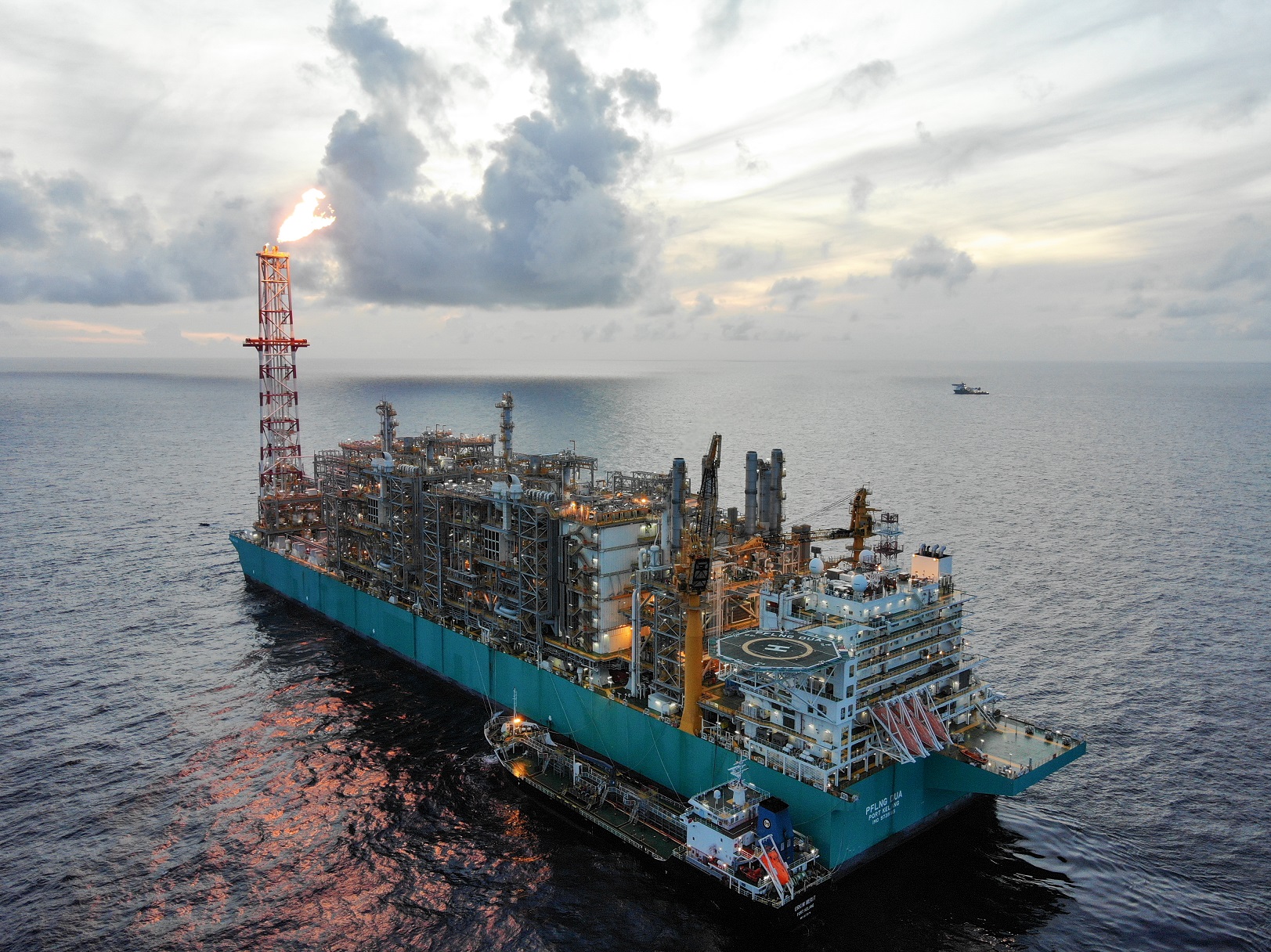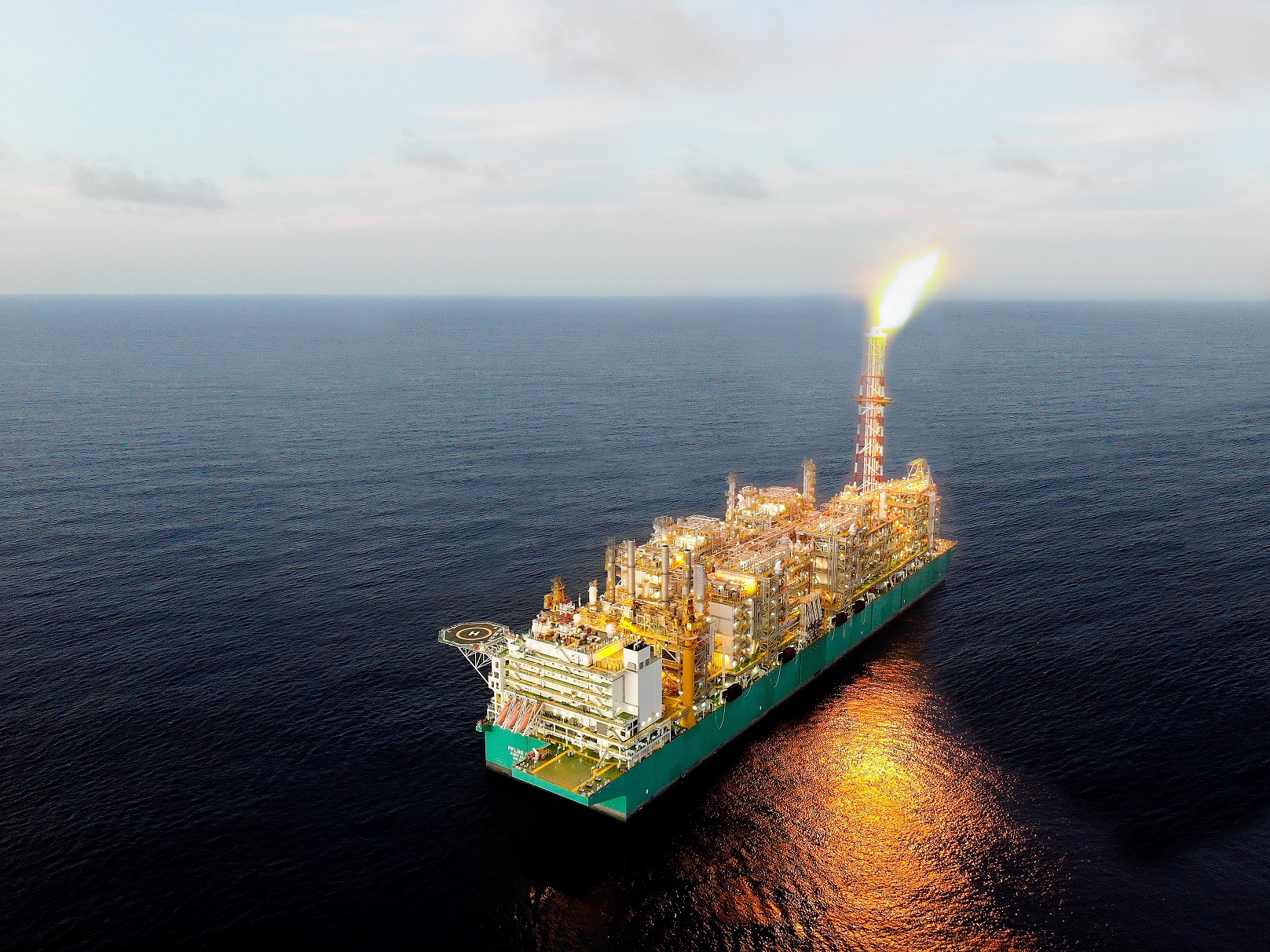PETRONAS marked yet another significant milestone for its second Floating Liquefied Natural Gas (FLNG) facility, PFLNG DUA, with the achievement of its First Drop of LNG production recently. This historic event signifies the ability of PFLNG DUA topside facility to produce on spec LNG product, which further validates the technology concept of floating LNG solutions for deepwater gas fields.

The Company’s first deep water FLNG facility is currently located at the Rotan gas field, 140km off Kota Kinabalu, Sabah. In collaboration with its upstream Production Sharing Contract partner, PTT Exploration and Production, it has successfully completed the subsea commissioning phase and achieved its First Gas on 6 February 2021.
PETRONAS Vice President of LNG Asset Zakaria Kasah said: “This achievement showcases our focused execution and continuous effort in pushing boundaries to deliver innovative and customer-centric solutions to our customers. Despite operating in a challenging environment which is exacerbated by the COVID-19 pandemic, we managed to commission this megastructure and achieve first LNG production in 7 days upon the first gas in. This is a record achievement, and a great milestone for PETRONAS and the LNG industry.”
PFLNG DUA is expected to deliver its first LNG cargo to customers by the middle of March 2021. Upon commercialisation, PETRONAS will become the first global energy company to own and operate two floating LNG facilities.
Together with PFLNG SATU, which first produced LNG from the Kanowit gas field offshore Sarawak in 2016 and was successfully relocated to Kebabangan field offshore Sabah in 2019, this game-changing solution allows for the processing of LNG to be done offshore hundreds of kilometres away from land. Its versatility enables PETRONAS to unlock remote and stranded gas fields that were previously uneconomical to explore.

PFLNG DUA is capable of reaching gas fields in water depths up to 1,500 metres and produces 1.5 million tonnes of LNG per year. It is part of PETRONAS’ portfolio of LNG facilities around the world, enabling the company to achieve its aspiration to power the world with cleaner energy, and at the same time, transform Sabah into a regional deep-water hub.
Source: Petronas